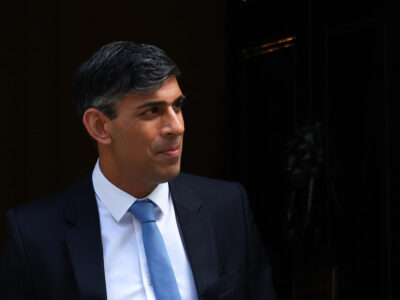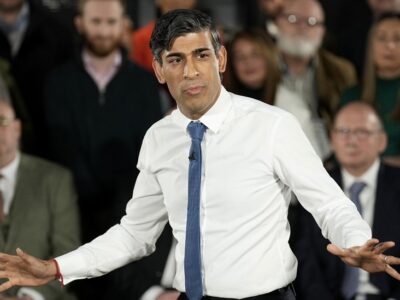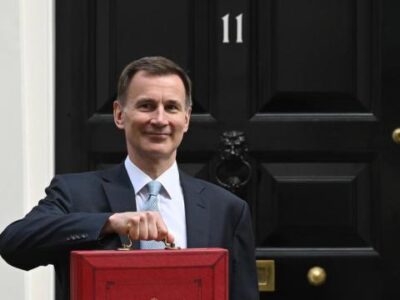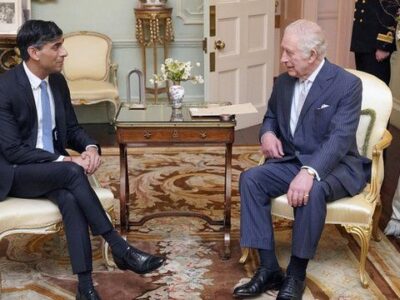Ministers will hold talks with energy giants on Wednesday morning to discuss measures to ease the cost of living. Chancellor Nadhim Zahawi and Business Secretary Kwasi Kwarteng will meet bosses to discuss rising prices and the sector’s profits, The Sun reported. Concerns over what will happen this winter come as figures suggest many households are already in energy debt.
Tory leadership candidate Liz Truss dismissed calls to agree on immediate plans to help those struggling. She told hustings in Darlington it would be “bizarre” to discuss potential policies with her rival Rishi Sunak and outgoing Prime Minister Boris Johnson before the contest ends. Yet new figures from comparison service USwitch laid bare the challenge facing Mr Johnson’s successor. Almost a quarter of households owe £206 to energy firms, on average, with the total debt owed by the public triple that of September last year, according to a survey of 2,000 households.

Forecasts predict average annual energy bills could rise to over £4,200 by January – almost half the basic state pension of £9,628 this year. Mr Johnson has faced growing criticism for not announcing further support beyond the £15bn package set out in May, while the government is under pressure to do more to help with bills.
Consumer expert Martin Lewis described the “zombie” government to “wake up” and put together a plan immediately. Currently, the energy profits levy – which the Treasury previously said could raise up to £5 billion – comes into effect from 26 May next year. Energy firms like BP have reported record quarterly profits this year that will not be impacted by the levy.
Companies supplying energy are getting much more money for their oil and gas than they were last year, partly because demand has increased as the world emerges from the pandemic, but more recently because of supply constraints following Russia’s invasion of Ukraine.
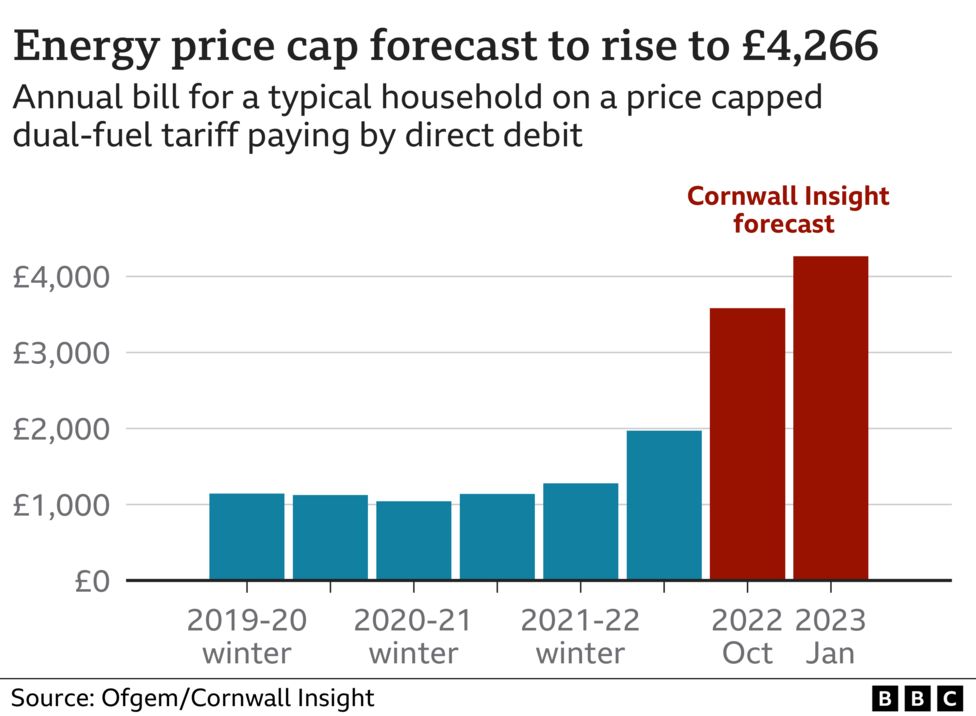
A windfall tax is a one-off charge imposed by a government on a company, designed to target firms that have benefited from circumstances they were not responsible for. Meanwhile, the two contenders to take over as Tory leader and prime minister criticised each other’s plans to help people with rising energy bills at an event for party members in Darlington.
Boris Johnson has ruled out making big spending decisions before he steps down in September, and what his successor would do has become a key issue in the battle to replace him in Downing Street. Former chancellor Rishi Sunak said he would welcome a meeting to agree to emergency support ahead of the winter. His rival Foreign Secretary Liz Truss branded the proposal “bizarre” and a “kangaroo committee”, describing widespread cash handouts to deal with the cost-of-living crisis as “Gordon Brown economics”.
Mr Sunak said the Conservative Party would be “hammered” at the next election without offering further direct support to households. He has not set out in detail what further payments he would make to households, saying the exact scale of the rise is still unclear, and any payments would come on top of existing support. Speaking later, Ms Truss did not rule out making further payments in a future Budget if she becomes prime minister. However, she said her priority would be to “help people have more of their own money”, highlighting her own plans to reverse April’s National Insurance rise and ditch green levies on energy bills.
![]()


